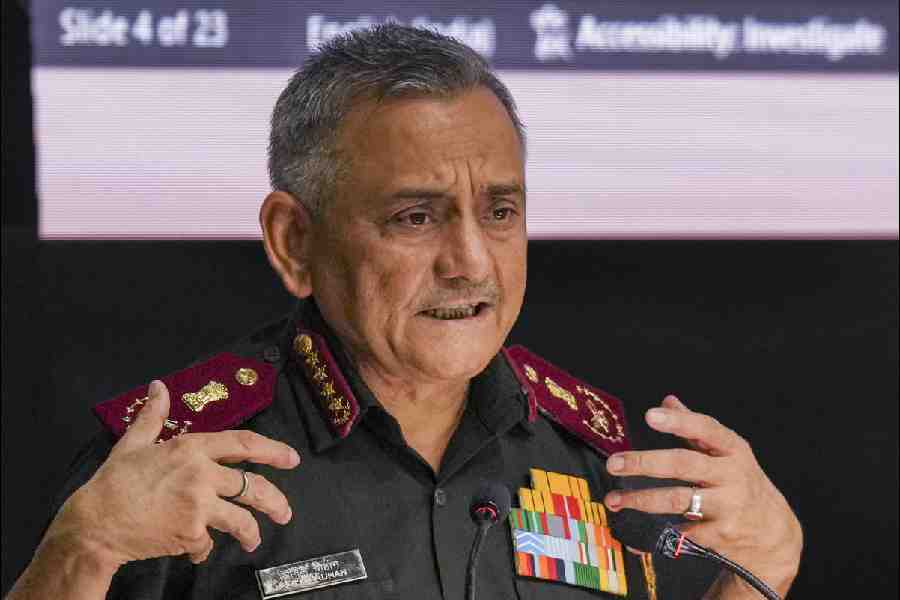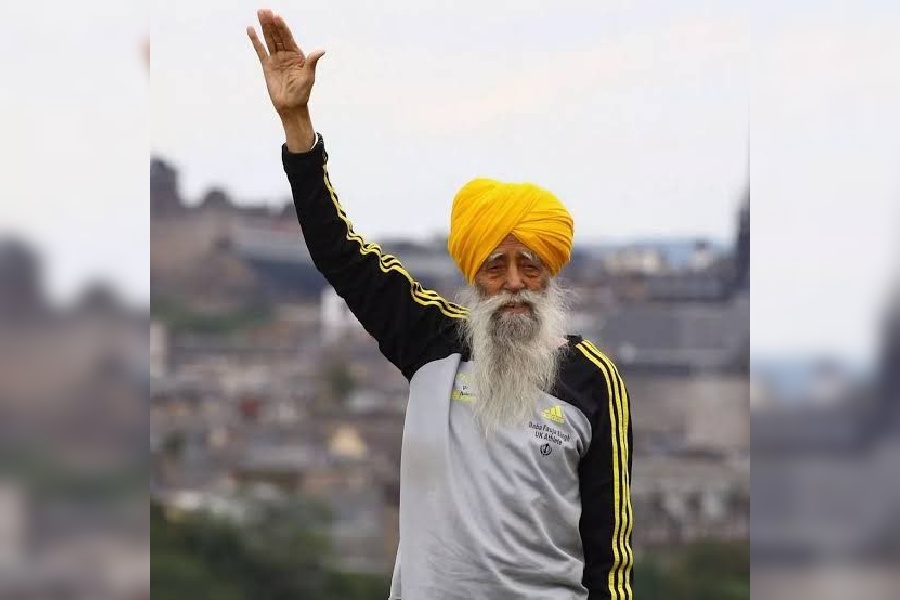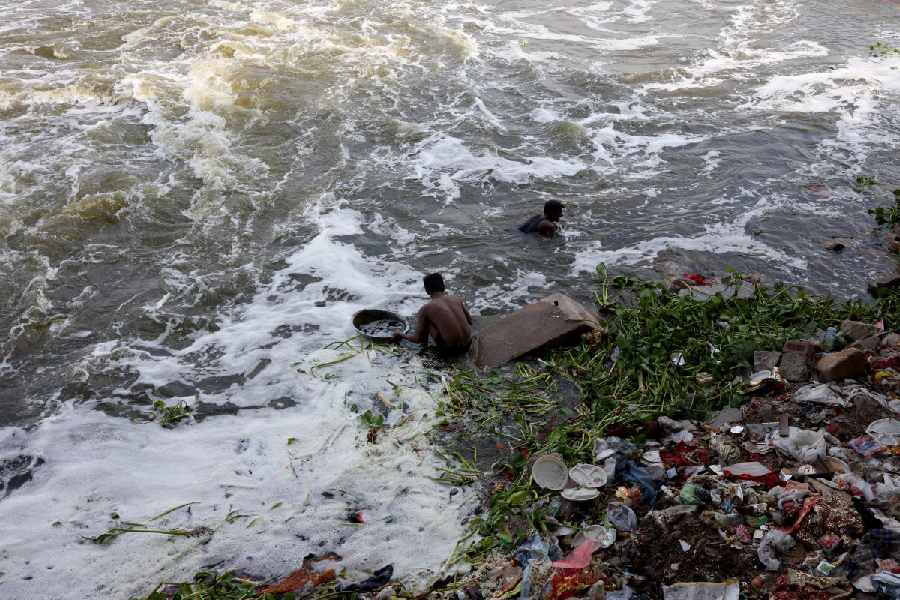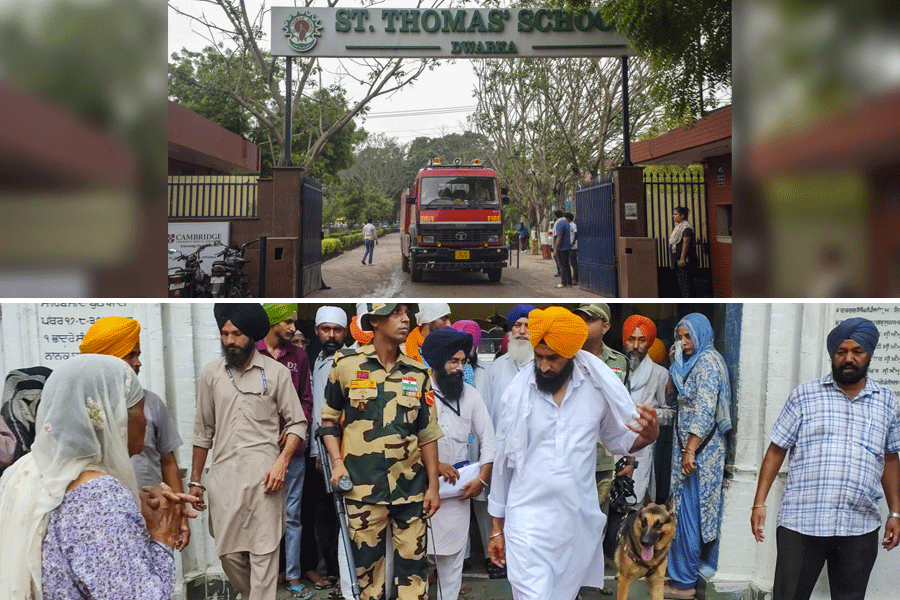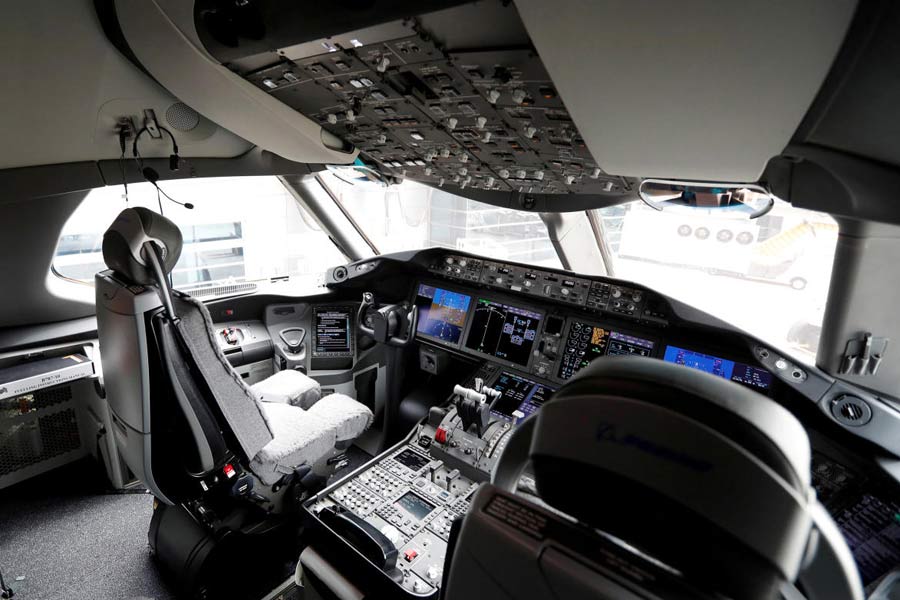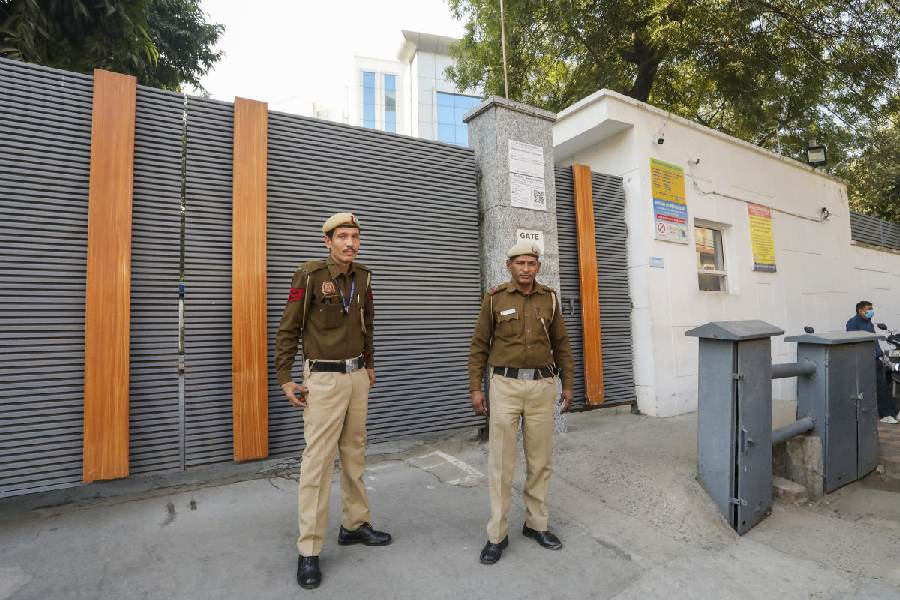 |
| Labour secretary S.K. Choudhary (left) and labour welfare director-general Anil Swaroop shake hands after signing the MoU, as Bhanu Pratap Sahi looks on. Picture by Hardeep Singh |
Ranchi, Aug. 7: The underprivileged of Jharkhand will now have access to proper healthcare, thanks to a health insurance scheme that charges an annual fee of Rs 30 only.
Launched in the state today, the Centre’s scheme allows BPL families to avail of modern medical facilities in select hospitals in the state and anywhere else in the country.
According to an agreement signed between the Union and state governments, families of five, including the father, mother and three children, can avail of treatment individually or collectively up to Rs 30,000. And all they need to pay is Rs 30. Conceptualised by the Union labour ministry, as many as 100 insurance companies, public and private, are part of the scheme. “With its large number of BPL families, Jharkhand would benefit immensely,” said Anil Swaroop, the director-general of the Centre’s labour welfare department.
According to the agreement, the state government would pay 25 per cent of the total premium of Rs 750 per family per annum. The remaining portion would be borne by the Union government.
All that a beneficiary needs to do is pay a registration fee of Rs 30. The state government would then prepare a smart card with his family details, including thumb imprints of all five members of the family.
To begin with, the scheme has been launched in seven districts, including Ranchi, Khunti, West Singhbhum, Seraikela-Kharsawan, Deoghar, Dhanbad and Garhwa. Later, it would be extended to the remaining districts.
Health and labour minister Bhanu Pratap Sahi, who was present at the signing ceremony, urged the gathering of civil surgeons to make the programme a success.
Jharkhand is 12th in line to get the scheme. As many as 11 other states, including Andhra Pradesh, Arunachal Pradesh, Gujarat, Haryana, Chhattisgarh, have being implementing it since April. Around 5,000 families have already been registered. “Hundreds of questions have come up on how the scheme would function. While preparing the scheme, we have tried to take care of every minor detail to ensure it works,” said Swaroop.
Explaining its working, he said the district administration, the hospital and the insurance company would have to be electronically networked to make the programme a success. Once the smart card is ready, it would be handed over to the family. “In times of need, the patient can go to a hospital of his choice and show it to the authorities. After establishing his identity and family details, the hospital provide free treatment,” said Swaroop.
“The entire operation would be paperless,” he added.


